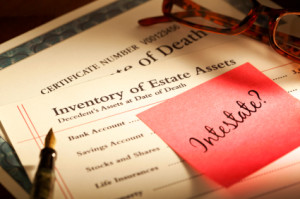Tips on Preparing Your Last Will & Testament
 Understandably, very few people take pleasure in planning their demise and what might happen to the people around them in their absence. Preparing a will and investing time and money into crafting an estate plan is the adult way of ensuring that your children, whether minor or adult, and the significant people in your life will be adequately provided for. By taking a little time to prepare a proper will, and possibly a trust, you can rest assured that your assets will be allocated accordingly among designated individuals and organizations after you are gone.
Understandably, very few people take pleasure in planning their demise and what might happen to the people around them in their absence. Preparing a will and investing time and money into crafting an estate plan is the adult way of ensuring that your children, whether minor or adult, and the significant people in your life will be adequately provided for. By taking a little time to prepare a proper will, and possibly a trust, you can rest assured that your assets will be allocated accordingly among designated individuals and organizations after you are gone.
The following are five tips to take into consideration when preparing a will. If you decide to retain an attorney for your estate planning needs, you can expect the process to be relatively the same as outlined below:
List All Assets:
You can start by simply listing all of your assets on a piece of paper and subsequently assigning them to individuals or organizations as part of your will. Your list should include the following:
- All bank accounts, including safe deposit boxes
- All real property, whether located in the United States or foreign countries
- Brokerage accounts
- Life insurance policies
- Retirement accounts
- Named guardian for any minor children
- Names & Addresses of those receiving the assets
- Any pending lawsuits, if recovery is expected
All assets should be listed even if some of them are quite small. Although you can include life insurance policies and retirement accounts in your will, these assets typically pass outside of the will. Title to the life insurance proceeds and retirement funds vest in the designated beneficiaries by operation of law. What that means is that upon your death, the beneficiaries listed on these accounts, will receive the funds by simply submitting a claim with the insurance company, no application or proceeding will have to be filed with the court. If there are no beneficiaries listed on these accounts, the proceeds will pass to the people you designate in your will.
 Name an Executor:
Name an Executor:
The executor is one of the most important key players you must include in your estate plan especially for the probate process. In the event that the will fails to name a proposed executor, the court will appoint one at their discretion. The executor or the executrix (if a woman) is the person who will liquidate your banking accounts, collect any rents, sell your real property, and defend any will contests on behalf of your estate. Think of the executor as the representative of your estate. For married couples, the executor is typically the spouse. You should always list successor executors in case your spouse or your first choice predeceases you. This is a crucial detail that often gets overlooked in many wills. Many times spouses die together in a common accident or the named executor spouse dies before the testator. Make sure to name at least two in case something happens to the other.
If you have no person in your life that you can trust to manage your estate, you can name your attorney to serve as the executor or executrix of your will. Lawyers have a duty to act ethically at all times pursuant to local state bar rules, and therefore, have all the incentive to not to run afoul of breaching their fiduciary duties.
Create a Plan:
Your will is designed to carry out your wishes after you have passed away. This means that you, and not the state in which you reside, will determine how your estate is divided up among your family and relatives. Remember to take into account any children from a previous marriage, if you own a business or have been contemplating a divorce. If you plan on disinheriting an heir, make sure to state it explicitly in your will. For example, if you plan on disinheriting your only child and leaving your entire property to your best friend or caregiver, include a sentence or two in your will to that effect. “I disinherit my son, John.”
Write a Letter of Personal Instruction:
Here, you can take care of the many little details that your family would have to do under the duress of your passing. In this letter you can list your wishes for funeral arrangements, where important documents are located and items that are not part of the will, with instructions on what should be done with them. You can also write a letter explaining why you decided to divide your estate the way you did if the assets are unequally apportioned among the heirs.
Finalize Your Will with an Expert:
Once you have determined the inventory of your assets and the key players of your estate, it is best to consult with an expert in the creation of wills so that nothing gets overlooked. While there are many do-it-yourself wills that you can find online, each state has its own unique laws that will need to be considered and that is where an expert comes into play. A company or a law firm specializing in estate planning can review your will and advise you of any deficiencies you may have missed. It is usually the case that a small detail can become a major sticking point in executing your wishes as listed in the will. Now is not the time to be cheap. A will should not cost more than a few hundred dollars. Find a local lawyer, or a business that specializes in document preparation. Do not attempt to create a will online or by hand. Handwritten wills are not valid in New York State.
If you are planning on disinheriting an important member of your family such as a child or a spouse, make sure to see an attorney. By taking a little time to get things organized into a will, you can save your family a considerable amount of stress during the trying time of your passing. This is where expert, legal advice comes in when preparing your will so that the document will be upheld in the court of law.
Kamilla Mishiyeva, Esq., is an Estate and Probate Lawyer in New York and founder Mishiyeva Law, PLLC. Contact her at (646) 535-1667 or make an appointment to visit her office located in 85 Broad Street 18th Floor New York, NY 10004.